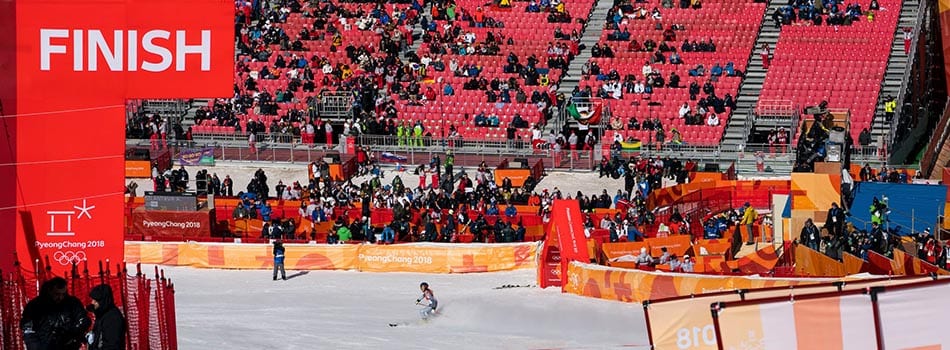According to officials managing the Pyeongchang Olympics, ticket sales are just about to their ultimate goal of 90% sold for the entire event, an amount which would total about 1 million tickets sold. It would be a huge victory, given the robustly documented struggles the event has seen related to ticket sales totals. But the reality on the ground appears to tell a much different story, with seas of empty seats at all but the most high profile events of the winter games in South Korea thus far.
The New York Times goes into detail on the phenomenon, which has led to some eerie moments where lifelong goals and dreams are realized by athletes playing to half-empty (at best) venues, and television shots of the crowd are tight to family members, or missing entirely.
“If we had this race in Italy, Austria, Norway, Sweden, it would be packed with 50,000 people,” said Norway downhill skiier Askel Lund Svindal, who won the gold medal in front of a mostly empty stadium. “It’s a bit sad.”
Fans, too, are feeling the strangeness of such an empty sea of seats at what is generally one of the most popular events in the world.
“We’re never again buying tickets in advance,” says Peter Skinner, an Australian quoted in the Times story. When the Times spoke to him and his wife, they were on the way to what is typically a hot ticket at the Olympics – figure skating. But they were able to get tickets at the last minute when alpine skiing events they had originally planned on attending were canceled due to high winds. “It’s sad, it’s half empty.”
In-person attendance woes have become a trend in recent years of Olympic competition. Both the previous winter games in Sochi, Russia and the summer Olympics two years ago in Rio de Janeiro saw large numbers of empty seats shown on television. The problem seemed to be particularly big in the lead-up to this year’s winter games, which saw officials scrambling to pump up numbers with giveaways, and tangential deals for tourists mounted at the last minute to try to coax people to make it to the country.
Given the amount of money spent and infrastructure put together for an event of this magnitude, it’s understandable that officials would want to emphasize that the numbers may not be as bad as the perception indicates, but it would appear that what fans can see with their own eyes belies the rosy picture they are hoping to paint.
One hopes that the officials for the 2020 games in Tokyo are paying attention as they consider whether or not to implement harsh restrictions on ticket resale in hopes of curbing the activity for the next go-around for the international spectacle. Perhaps the recent trend means they’d be better off trusting people willing to assume some of the risk and put fans in those seats at whatever price the market will accept, rather than shutting the free market down.



